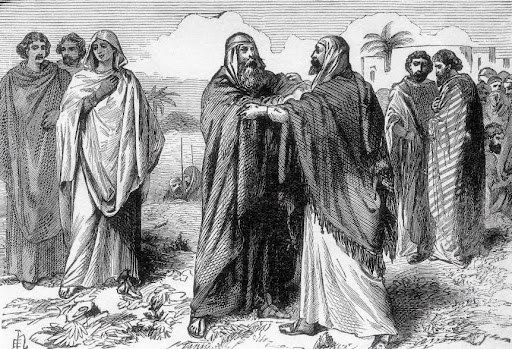
If the 10 Commandments are the most powerful symbol of the Jewish contribution to Western morality, could the preceding story about Yitro - a non Jewish priest who both recognizes the Jewish God and also offers advice about how Moshe should be running his judicial system - be the Torah's way of telling us to be open to wisdom from gentiles? There is in the story of Yitro's meeting Moshe both the preservation of Jewish identity and the accepting of advice from someone outside the Jewish faith. Had the Torah wanted to relay a pro-Wisdom-in-all-its-forms-and-sources message, it might explain why it specifically places this story before the 10 commandments. The message seems to be not to be closed off to Wisdom from the outside...
On the other hand, there is a strong (unanimous?) tradition in Rabbinic literature that Yitro converted. What converted means specifically in the context of Israelites in the desert is not clear at all, but the word "Vayichad" would support this reading. The question then of why the story of Yitro precedes the 10 Commandments can still be partially answered by pointing to openness to external Wisdom, but Yitro's conversion in and of itself would suggest more than that.
Perhaps, just as we read about Ruth before we celebrate receiving the Torah on Shavuot, so too right before the 10 Commandments we tell the story of Yitro. Both these people freely chose to join the Israelites -- a powerful example for those born into a life where Torah is taught to them before they can actually choose it for themselves.
No comments:
Post a Comment